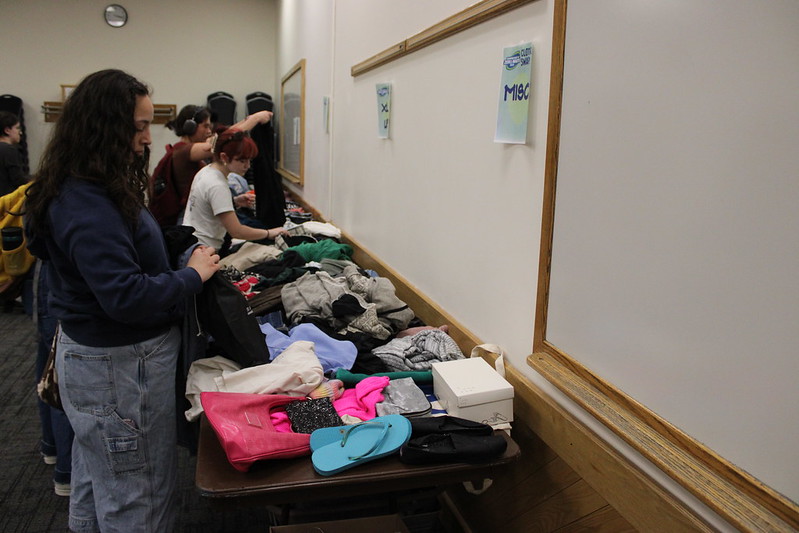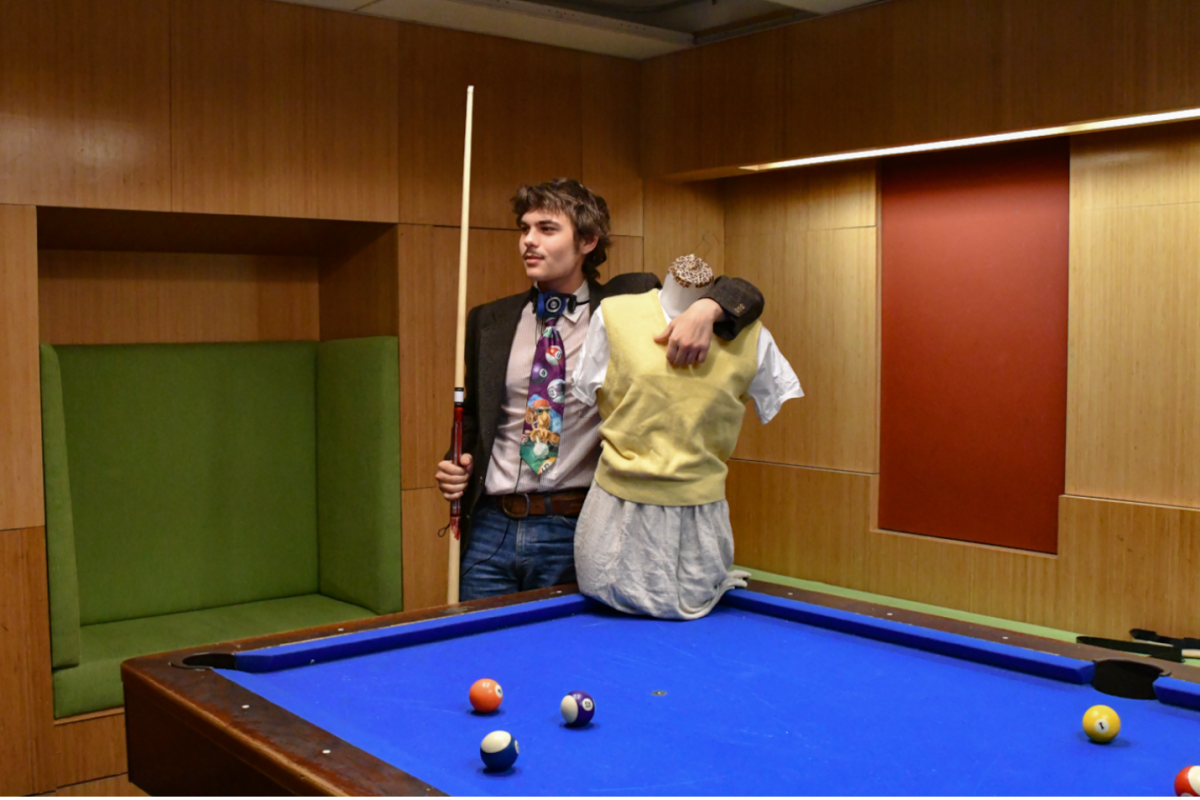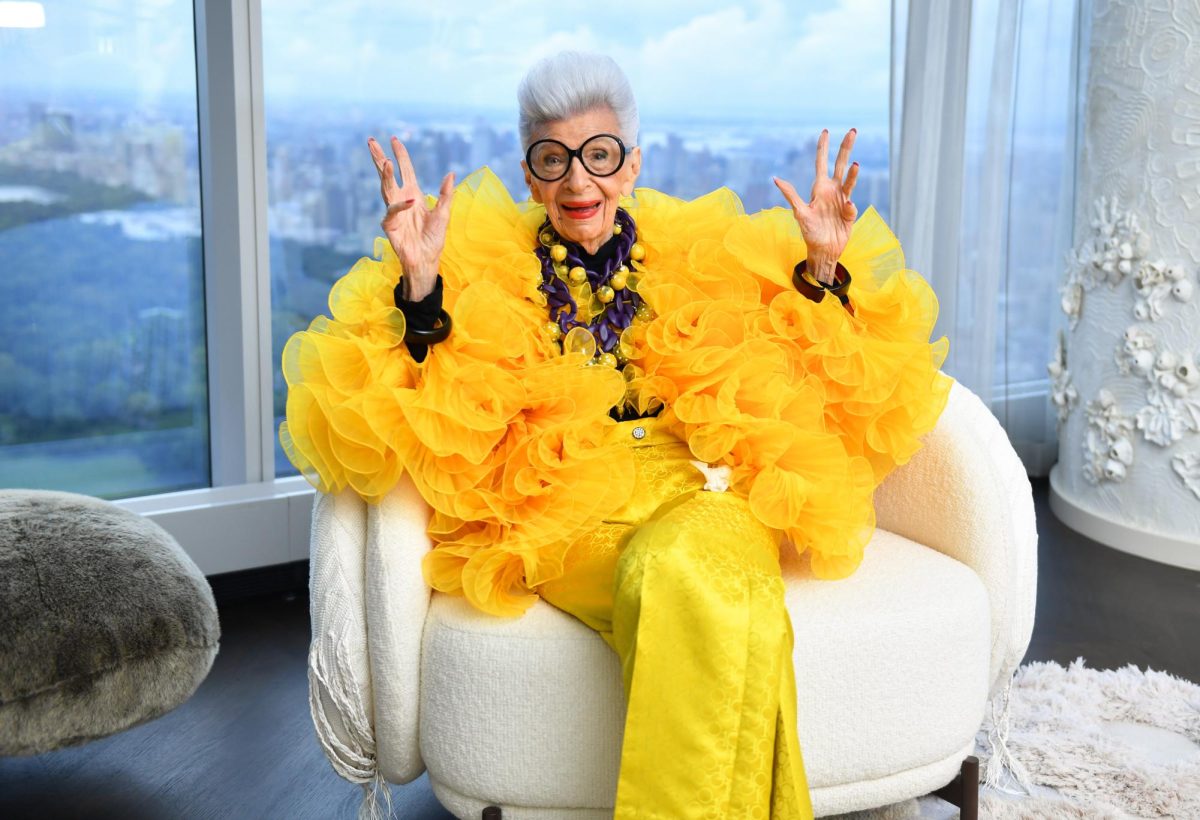 The Massachusetts Daily Collegian recently sat down with Professor Kirby Farrell of the University of Massachusetts English Department. Farrell teaches a course on the Victorian-era British literary obsession with monstrosity. He discusses Mary Shelley’s “Frankenstein,” Robert Louis Stevenson’s “Dr. Jekyll and Mr. Hyde” and Bram Stoker’s “Dracula,” among others. In the spirit of the season, Farrell offered his perspective on the culture of Halloween, past and present.
The Massachusetts Daily Collegian recently sat down with Professor Kirby Farrell of the University of Massachusetts English Department. Farrell teaches a course on the Victorian-era British literary obsession with monstrosity. He discusses Mary Shelley’s “Frankenstein,” Robert Louis Stevenson’s “Dr. Jekyll and Mr. Hyde” and Bram Stoker’s “Dracula,” among others. In the spirit of the season, Farrell offered his perspective on the culture of Halloween, past and present.
“We live life,” says Farrell, “snuggled inside a magic circle of conventional beliefs, and the whole idea of holiday is to punch through the circle and explore something else.” In the case of Halloween, that “something else” turns out to be “death, witches and all of the monsters that you don’t want to think about in your safe and tidy everyday world of habit and self-congratulation.”
Like many holidays, Halloween arose from certain human fears: “It evolved out of more basic kinds of ancestor worship and anxiety about what to do about the dead. In the ancient world, dead ancestors could come back to help you,” said Farrell. “Or, if you had residual guilty feelings, they could come back to haunt you. The boundary between life and death was blurred and nerve-wracking.
“But, from that point of view,” continued Farrell, “I think most of us probably find it impossible to imagine death in any meaningful way…death is really unthinkable, cognitively unthinkable. You can only think of it in terms of death equivalents, symbolic equivalents … we’re not by any means primitive people, so to speak, but it doesn’t matter. We still think the way children do from time to time.”
According to Farrell, hundreds of years ago, people were not spending their time reading about the latest scientific discoveries.
“You didn’t have folks a couple hundred years ago looking at the daily newspaper, seeing a news item about astronomers discovering that the sun will burn out in 4.5 billion years … people didn’t talk like that. Maybe you talked about the last judgment or something apocalyptic, but that cast it as a story that had, as it were, moral uplift, and put you in a potentially chauvinistic role: you were about to get rewarded.”
Tending to think like children in relation to cosmic matters, people today tend to act like them too, on holidays such as Halloween. Farrell said, “We play as groups. You go out in a group, you visit the neighbors, and ideally the neighbors give you a reward for visiting them. It becomes a way of reestablishing that kind of community. It’s a game. The neighbors get into the game as well.”
Farrell cited a ninth century European ritual, and said,“once a year, folks would form a serpent chain and dance through every doorway in the village, in and out of virtually every room. I’m guessing that one reason for that would be, as in Halloween, to literally put you in touch with your neighbors.”
He also said it was to demonstrate to neighbors that people were not hiding anything, and contemporary Halloween folklore mimics that theme. Farrell added, “remember the urban legend that went around for a few years that people were putting razor blades in apples?”
According to Farrell, the obsession with safety demonstrated by that widespread urban legend is a recent addition to Halloween. “It’s really telling you something that’s shifting in the culture – in its demands for safety, its demands for security and at the same time its heightened sense of insecurity,” he said. “The more security you demand, obviously the more insecure you feel.
“Oftentimes, you hear people say that it’s government’s fault for not protecting me from this and that,” he continued. “Well, it might be that some public policy could do much to improve your security, but it also could be that your wish is that all of the competition, all of the grating and humiliating problems you’re running into in everyday economic life are making you wish that you had some parental, or governmental or even supernatural force that could save you from difficulty.”
In that sense, the function served by Halloween folklore is much the the same as that of the ancestor worship of centuries past. That is, to give a society an opportunity to face its deep fears, but in a sheltered and festive way. Farrell likened the tendency to his own childhood fascination with horror stories. “I can remember, as a kid, chasing down all kinds of literature that was full of mystified, spooky emotions of a sort that I was having trouble with growing up,” he said. “Reading Edgar Allen Poe…stories, trying to evoke uncanny feelings.”
Professor Farrell also pointed out the connection between the attitudes associated with Halloween and those associated with the Occupy Wall Street movement, which is full of people dressed in what amounts to Halloween costumes. Farrell described it as reaching a point where a certain sub-culture has become explosively concerned, but they make their concern and their anger and their rebellion acceptable by using comical counterculture: masks, signs, role-playing, etc. In a way, it’s like Halloween: you laugh because the alternative is to think about, say, being dead forever, which could hurt your feelings. Or being so angry at the system that you want to break windows and raise hell, which would be pointless.
“But,” he continued, “as with a holiday like Halloween, there’s the nervous problem that the moon comes out, the moon wanes, and then the next day comes, and everybody goes home and milks the cow. The problem here will be trying to articulate the suffering and the mental confusion of a historical moment that’s drifting, conflicted and self-destructive.”
From that viewpoint, it seems troubling that the hyper-reality of holidays like Halloween permeates the cultural response to the very real problem of corporate greed. Farrell recalled the effectiveness of University “teach-ins” during the cultural confusion of the Vietnam, and suggested that they might be useful in this current time of crisis. “It certainly wouldn’t hurt to be doing that at UMass,” he said. “There are any number of eminently appropriate economists here, and historians and others, including me, who’d be perfectly happy to try to make some sense out of this historic turmoil.”
To wrap things up, Farrell related a notion borrowed from psychologist Otto Rank: “The world wants to see melodrama and fantasies of heroic violent assertion and expansiveness – military clash, explosive weaponry, technological dominance over nature and the universe. But his basic argument is that if you look closely at the kind of creatures we are, we stay childlike throughout our lives – that’s neoteny – and we’re mostly quite afraid,” he said.
“We’re equipped to be anxious about our vulnerability, our puniness, our weakness, our smallness,” he continued. “From that point of view, most of our lives we lead trying to surround ourselves with prejudices and tools that work. With habits that will shelter us.”
“The big problem isn’t that the bogeyman or the witch is going to get you. The big problem is that people are afraid to be alive. So we built these rather rigid limits to our consciousness. And holidays and play are some of the ways we have in culture of expanding these boundaries in a provisional, experimental way – without getting killed. If you do it right.”
Garth Brody can be reached at [email protected].






